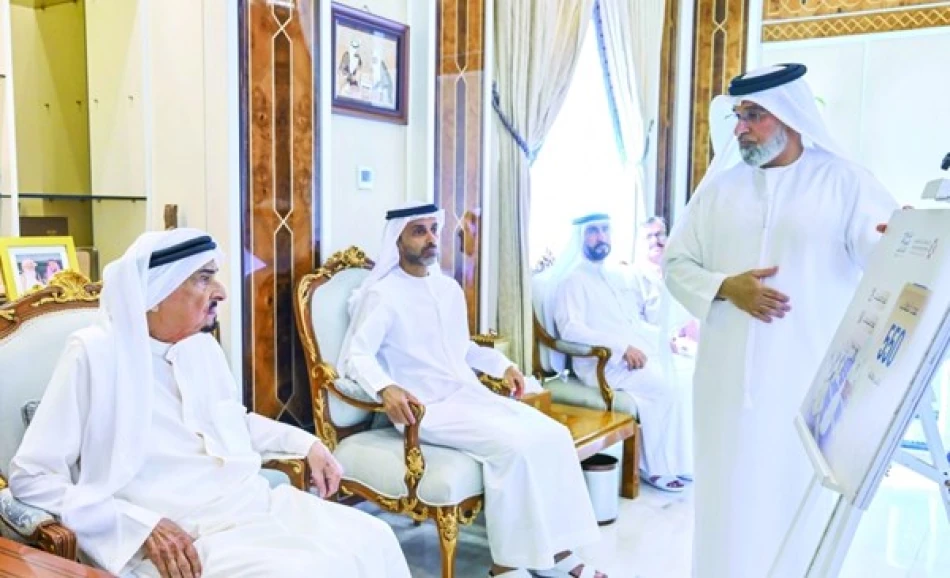
Ajman Leader Committed to Quran Education and Youth Development
Ajman Ruler Champions Quranic Education as UAE Strengthens Cultural Identity
Sheikh Humaid bin Rashid Al Nuaimi, Ruler of Ajman, has reaffirmed the emirate's commitment to Islamic education by reviewing the successful completion of a major Quranic summer program that engaged 550 students across 24 days. The initiative reflects the UAE's broader strategy to preserve cultural and religious heritage while modernizing its economy and society.
Record Participation in Quranic Summer Program
The thirteenth annual summer activity organized by the Humaid bin Rashid Al Nuaimi Center for Quranic Service achieved significant milestones, with participants distributed across 29 Quranic study circles totaling 94 instructional hours. The program's scale demonstrates growing interest in traditional Islamic education among Emirati youth.
During a meeting at the Amiri Diwan, Sheikh Humaid received a detailed briefing from Hussein Mohammed Al Hammadi, Executive Director of the center, on the program's activities and outcomes. The ruler emphasized that nurturing young people and encouraging them to memorize the Quran represents a fundamental approach in Ajman's educational philosophy.
Strategic Investment in Religious Education
The Ajman ruler declared that supporting Quranic memorization centers and their programs remains a top priority for the emirate. This commitment aims to graduate generations who are well-versed in Islamic teachings and can serve as role models in behavior and conduct.
Sheikh Humaid pledged continued provision of resources and capabilities to develop the center's programs, ensuring expansion of activities and increased beneficiaries across different age groups and demographics.
Cultural Preservation Amid Rapid Modernization
This emphasis on Islamic education occurs as the UAE navigates rapid economic diversification and social transformation. While Dubai and Abu Dhabi attract global attention for their business hubs and technological advancement, smaller emirates like Ajman are carving distinct identities through cultural and educational initiatives.
Regional Context and Significance
The UAE's approach mirrors strategies employed by other Gulf states seeking to balance modernization with cultural preservation. Saudi Arabia's Vision 2030 similarly emphasizes Islamic values alongside economic reform, while Qatar has invested heavily in Islamic education through institutions like Hamad Bin Khalifa University's College of Islamic Studies.
However, Ajman's model stands out for its grassroots approach, focusing on community-level engagement rather than large-scale institutional development. The program's 550 participants represent a significant portion of the emirate's youth population, suggesting high community buy-in.
Implications for UAE's Social Cohesion
The initiative carries broader implications for the UAE's social fabric. As the country hosts a diverse expatriate population exceeding 80% of residents, programs like these serve to strengthen Emirati national identity and ensure cultural continuity across generations.
The presence of senior officials at the briefing—including representatives for administrative and financial affairs, the Amiri Diwan president, and the digital department head—signals institutional commitment extending beyond ceremonial support to practical implementation and resource allocation.
Investment in Human Capital
From an economic perspective, this investment in character-based education complements the UAE's broader human capital development strategy. As the country transitions toward a knowledge economy, combining technical skills with strong ethical foundations becomes increasingly valuable for sustainable development.
The program's structured approach—with measurable outcomes in terms of participants, study circles, and instructional hours—demonstrates professional management standards typically associated with the UAE's governance model, suggesting potential for replication across other emirates.
Most Viewed News

 Layla Al Mansoori
Layla Al Mansoori






